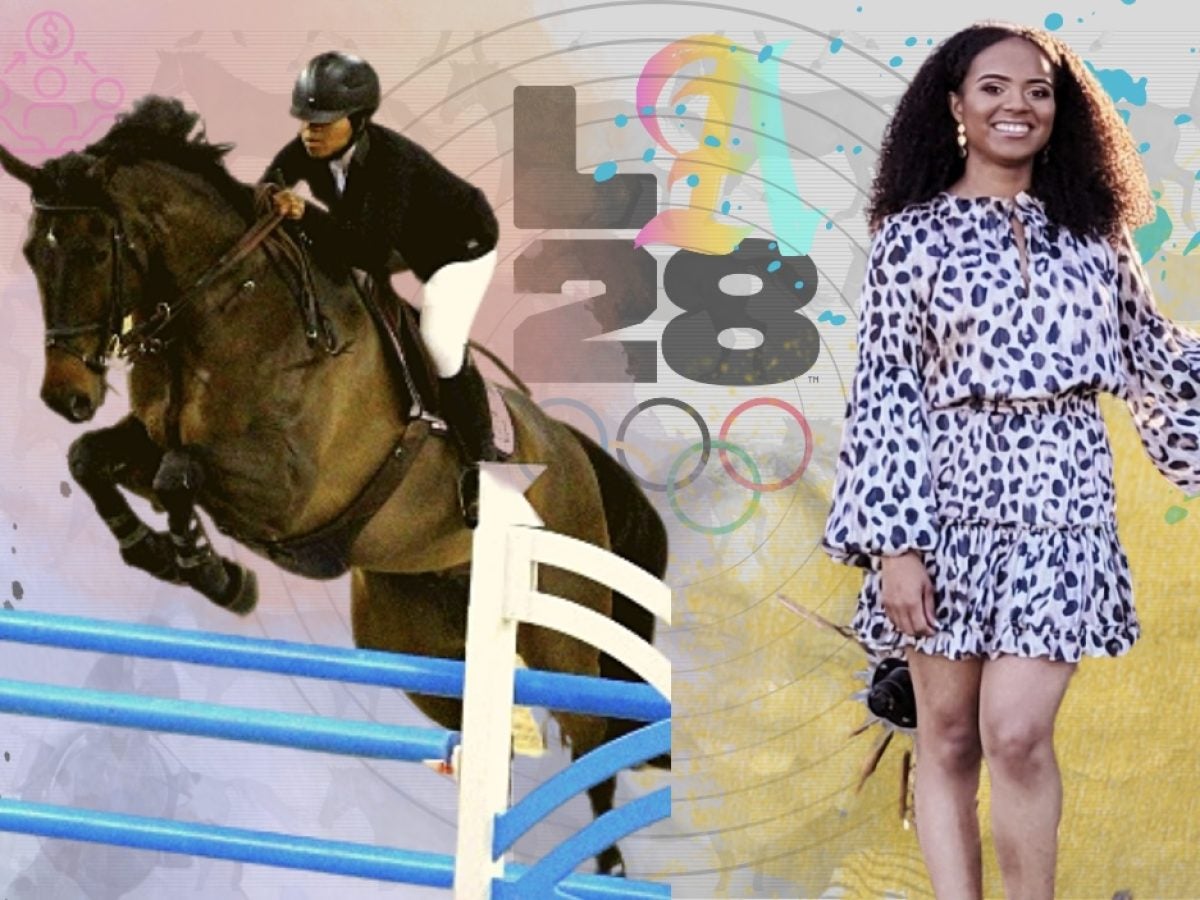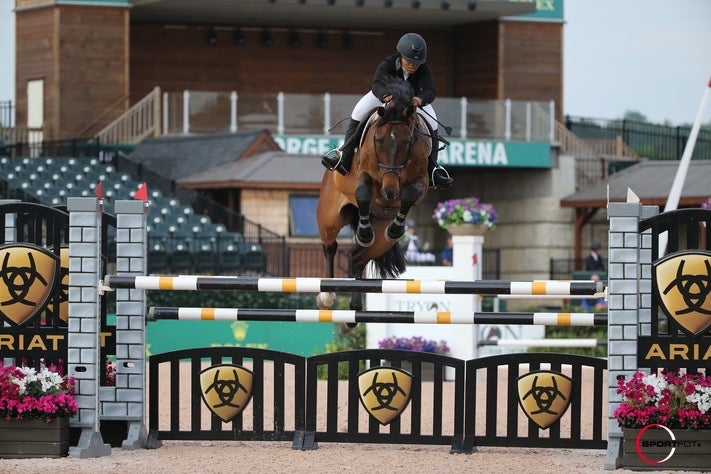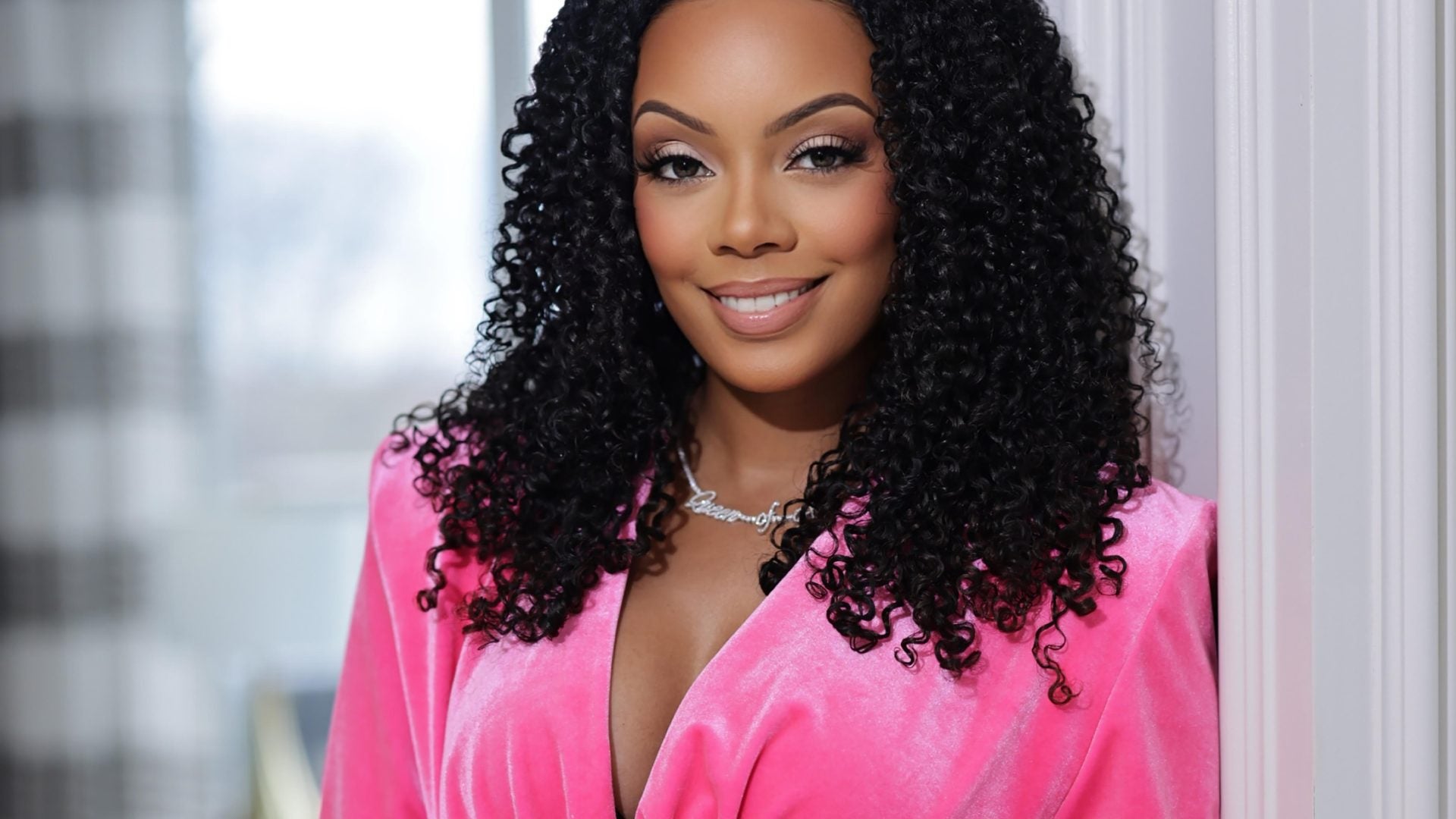
It’s showtime. Malachi Hinton has spent months in preparation for competition day. She mounts her horse, sinks into the saddle, and rides toward the arena. She mentally blocks out all distractions in preparation for the jump walls and twisty paths awaiting her on the course. “I’ve been known not to hear anybody when I’m in the ring. I don’t know what happens, but I can’t hear anything other than my plan in my head,” Hinton told ESSENCE.
On eventing days, she’s up before the sun. Hinton arrives at the arena at 4:30 am with her horse, RS Contero. “He requires a pre-ride to stretch his legs, warm up and really get any nerves out of his system,” she said. A strong bond between horse and rider is a competitive advantage, and RS Contero is Hinton’s athletic partner. Once her horse is warmed up, she leaves him at the stables and goes to preview the course. “The horses are not able to see the course prior to competing, only the riders,” Hinton said.
Mapping out the action plan at the riding arena where the show jumping event takes place is crucial. Hinton sets aside an hour and a half before showtime to walk the arena and study the course. “I like to sit, close my eyes, and really visualize myself riding the horse through every jump. I go over it in my head over and over again until I know exactly what my plan is,” she said. At go-time, all the practice and preparation culminate into one clear mission—finish a clean round and complete the course with no mistakes inside the allotted amount of time.

The 24-year-old professional show jumper exudes a calm confidence, singular focus, and disciplined execution that make her goal of competing at the Olympic level attainable. But excelling in the elite world of show jumping requires more. Competing at the highest levels of the discipline is costly. Equestrian sports ranks among the top five most expensive sports in the world. The price of competing is exhaustive for most. With training fees, show fees, travel, and the cost of horse ownership, expenses can quickly run up to about $3,000 a month.
“I always say that show jumping is closely related to other elite sports, like tennis, golf, and even Formula 1. It’s one of those sports that is usually occupied by the world’s wealthiest families,” Hinton said. The combination of privilege, exposure, and exorbitant cost has long been a barrier to entry for those below the upper echelon of society—even more so for people of color. If she qualifies for the US Equestrian team in the 2028 Summer Olympics, Hinton will be the first African American to do so.
I spoke with Hinton, now an entrepreneur, and stable owner, about what ignited her passion for show jumping and how she rallied a dream team of Black investors to fund her Olympic-sized dreams.
An early passion for riding.
This competition season, Hinton is competing in two of the largest competitions in North America—the Winter Equestrian Festival in Wellington, Florida, and the Longines Global Champions Tour in Miami Beach. While the potential prize purse worth more than $12 million is appealing, every competition is an opportunity to build mastery toward qualifying for the Los Angeles 2028 Olympic Games. For Hinton, who rode her first horse when she was nine, practice really makes perfect.
Hinton was introduced to horseback riding by her mother, Deidre McAuley Hayes, an intellectual property attorney who took riding lessons when she was younger. From the moment Hinton mounted her first horse, she was hooked. “I think as a child. I really fell in love with the peace of being around horses. They’re such gentle animals. I was a bit more of a quiet child, to begin with, and so that’s something that related to me,” she said.
Over time, her love for riding evolved into a passion for equestrian sports. “From the beginning, I always knew I wanted to be a professional rider, but my mom instilled education in me, so going to college was always on the plate,” Hinton said. After obtaining a degree in pre-medical sciences from George Mason University in 2020, Hinton returned to riding full-time with her mother’s blessing. “My mom was very smart in saying I needed a backup plan. But, she was also very encouraging in saying I need to go after my dreams,” she said.
Intent on maximizing her knowledge and riding skills, Hinton has dedicated most of her life to working with horses. “Horses need 24/7 care for the most part. So, it’s a big time commitment and focus commitment. And then also having to travel and compete, it’s just your life—A lifestyle. So, it’s a passion that I feel like I was blessed with,” she said.
Hinton turned that passion into her profession by forming the Toano, Virginia-based sports horse investment and competition stable, Rhema Sporthorses LLC. “I started it after I graduated from college. That’s when I really went for it and said, ‘okay, now I’m done with school, I’m going professional, and this is my business,'” she said. Although Rhema was officially formed in 2020, the idea for the business started in 2015 with the acquisition of one competition horse.
“My first upper-level show jumping horse was purchased by an investment group composed of about five or six people from our local Williamsburg area and some associates my mom knew,” she said. Hinton competed to the highest junior level with that horse. “We had a lot of success from him, and then I sold him a couple of years later for a profit. And so, the investment group was able to get returns off their initial investment. And that’s where it all really began,” she said.
A dream team of Black Investors.
Professional horse jumping is a captivating and demanding sport requiring skill, discipline, and round-the-clock commitment—Hinton exemplifies all three, but that’s hardly enough in professional show jumping. In addition, competing at the Olympic level comes with a significant price tag. “With show jumping, horses, in general, are very expensive. Prices on these horses range between mid-five figures up to the upper six figures. So, getting started can be difficult,” she said.
Funding Hinton’s equestrian sports ambitions are a team of Black investors who get the double benefit of funding a truly promising athlete and securing a coveted opportunity to own elite competition horses—potential profit-making winners.
Equestrian sports have long been a favored investment of the uber-rich. This year, buyers spent more than $405 million on year-old racehorses, known as yearlings, at the Keeneland September Yearling Sale. With Rhema Sporthorses, Hinton aims to pull diverse individuals, businesses, and owners into the niche investment space. Equestrian sports is a $122 billion industry. Its global reach and audience attract sponsorships from high-end brands like Rolex, Land Rover, and Longines. “The sport is teeming with investment opportunities,” Hinton said. Black investors own every horse in the Rhema Sporthorses stable.
In addition to investor funding, Hinton secured two local sponsors to help fund her 2023 competition schedule. “Joss Brown Wealth Advisors in Williamsburg and Newport News and Horizon Companies, a real estate investment company, based in Lawrenceville, Georgia are companies I’ll be very proud to represent on the course,” Hinton said. With competition season at hand, she’s actively scouting for more.
While there are undoubtedly measurable challenges en route to fulfilling her Olympic show jumping ambitions, for Hinton, challenges are merely obstacles to be jumped—that’s what she’s trained her whole life to do.






